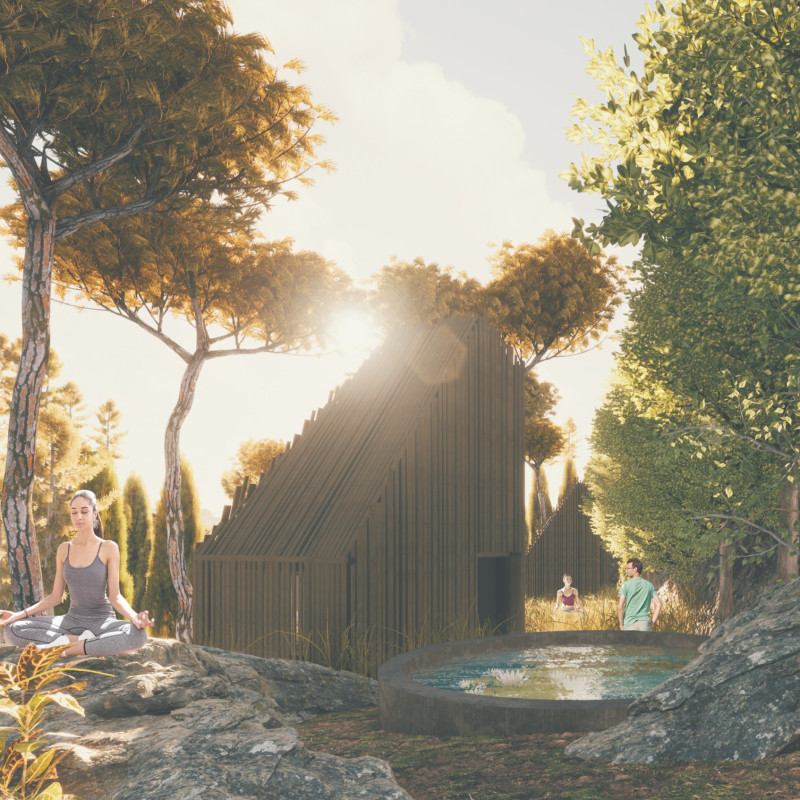5 key facts about this project
The project embodies a concept centered around biomimicry, situated in a setting that evokes a forest environment. It features a series of cabins designed to enhance engagement with nature, influenced by the practice of forest bathing, known as shinrin yoku. This carefully considered approach ensures that each cabin plays a role in promoting reflection, exploration, and connection with the surrounding landscape.
Outdoor Meditation Spaces
Integrating outdoor meditation areas, the design forms spaces within the living structures of plants and trees, allowing for quiet moments of contemplation. These inviting settings encourage users to engage their senses and foster a deeper bond with nature. The thoughtful arrangement of these areas enhances tranquility and contributes to a sense of well-being.
Water Management System
The design employs a gravitational water management system that takes advantage of the site's natural topography. Various water features direct the flow of water, concluding in a reed bed that serves both ecological and aesthetic purposes. This method highlights a commitment to sustainability and reinforces the project's harmony with the environment.
Communal Wellness Amenities
Central to the cabin cluster are community-focused facilities, including a plunge pool and a thermal bathing pool. These amenities act as social spaces, encouraging interaction while providing areas for relaxation. The inclusion of these features enriches the overall experience, supporting both individual rejuvenation and community gatherings.
The selection of materials includes timber for the cabin frames, native stone that provides thermal mass, cork for internal lining, and wool used for insulation between studs. These choices are practical and align with a broader design narrative, emphasizing sustainability and local sourcing for a cohesive approach.
Visitors can navigate through the cabins in a journey that reveals varied landscapes, ultimately leading to the tranquil plunge pool. This design detail blends built forms and natural elements, promoting contemplation and an appreciation of the surrounding environment.





















































